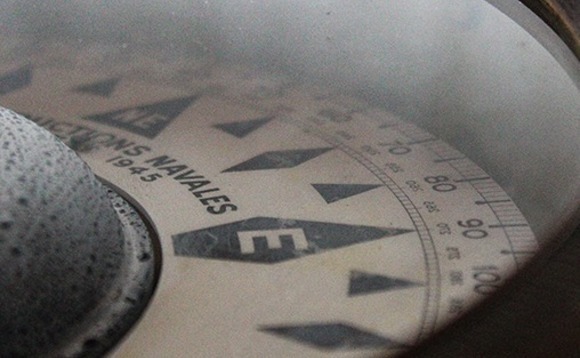
Deal focus: Mapping malls and metaverses

Mapxus sees indoor maps of high-traffic areas in high-density cities as the last piece of infrastructure to digitalise. The Hong Kong start-up has won corporate and VC backing to expand region-wide
Google Maps has more than 1bn monthly users across 220 jurisdictions that rely on its services for navigation and route planning. Mapxus, a five-year-old Hong Kong start-up wants to do the same for indoor mapping. The company has developed its own algorithms and Android package kit (APK) so that coverage can be provided in shopping malls and stations beyond the (accurate) reach of GPS.
"We don't install any hardware, do sophisticated surveys, or use LiDAR for mapping; we rely on smart phones and AI [artificial intelligence]," said Ocean Ng, co-founder and COO of Mapxus.
"Our customer, most likely the building owner, provides a traditional paper-based floor plan. We have software to transform it into 3D and then our algorithms to make use of existing Wi-Fi infrastructure and sensors on smart phones to do the positioning. This can be done easily and it is very scalable."
Mapxus received a Series A round of USD 10m in 2019, which was led by Hong Kong's Beyond Ventures and featured several family offices and property technology investors. This was used to demonstrate the technology worked in its home market. It has deployed barrier-free navigation across 150 landmark buildings in Hong Kong, including the territory's largest shopping malls.
Services can be tailored for those with disabilities. Ng claims that people who are visually impaired can use the voice navigation function on a smart phone app to locate coffee shops. Last year, the company created a navigation system specifically for the blind on part of Hong Kong's MTR network.
Mapxus is now expanding into Japan and Southeast Asia. Its technology has already been implemented in 1,000 buildings in Japan with the assistance of Kawasaki Heavy Industries, a local conglomerate best known as a supplier of motorcycles, rolling stock, and aerospace and defence equipment. Kawasaki recently invested USD 5m in the first tranche of Series B funding.
The goal is to raise an additional USD 10m-USD 15m across subsequent Series B tranches and push ahead with regional expansion. Mapxus wants to become the leading indoor map infrastructure provider in Asia Pacific and Kawasaki-like partnerships are seen as the fastest way to scale.
"Kawasaki is implementing our technology in Japan and doing all the sales and marketing, which means we don't have to spend time mapping 1,000 buildings," said Ng. "We are going to do the same in other markets, including Southeast Asia. We will share our technology with different partners and expand data infrastructure together for different applications in their countries."
Mapxus sells its technology to building owners under long-term engagement contracts that include system maintenance and map updates. The building owners provide mapping services to users for free, although there is sometimes monetisation through advertising. Another customer type subscribes to Mapxus' data streams for digital marketing and location-based positioning.
There are also private use cases that involve deploying indoor mapping to improve resources management – spanning facilities, staff, and services – in factories and hospitals. "Smart cities have the highest density and complexity of buildings, but they are still using paper-based floor plans for building management," said Ng. "They must go digital to improve management."
He describes Hong Kong as a logical place for Mapxus to demonstrate its technology because within the region it is "a very typical smart city with high-density buildings." However, the company's ambitions are not limited to the physical realm. Metaverse customers have also been in touch.
Earlier this month, Mapxus announced a joint venture with NOIZChain, a unit of Hong Kong-listed blockchain-as-a-service provider Merdeka Financial Group, to develop an indoor location-based metaverse that uses non-fungible tokens (NFTs) to combine gaming and finance. The metaverse, known as Honio, will initially focus on Japan and then enter Hong Kong, Taiwan, and Southeast Asia.
Mapxus will "build spatial digital twins of real-life shopping malls and landmarks in the Honio metaverse," according to a statement. Honio app users will receive tokens and other rewards based on how long they spend in physical stores. Tokens can be used for NFT trading in the metaverse or redeemed for real-life commodities and experiences.
Latest News
Asian GPs slow implementation of ESG policies - survey
Asia-based private equity firms are assigning more dedicated resources to environment, social, and governance (ESG) programmes, but policy changes have slowed in the past 12 months, in part due to concerns raised internally and by LPs, according to a...
Singapore fintech start-up LXA gets $10m seed round
New Enterprise Associates (NEA) has led a USD 10m seed round for Singapore’s LXA, a financial technology start-up launched by a former Asia senior executive at The Blackstone Group.
India's InCred announces $60m round, claims unicorn status
Indian non-bank lender InCred Financial Services said it has received INR 5bn (USD 60m) at a valuation of at least USD 1bn from unnamed investors including “a global private equity fund.”
Insight leads $50m round for Australia's Roller
Insight Partners has led a USD 50m round for Australia’s Roller, a venue management software provider specializing in family fun parks.








